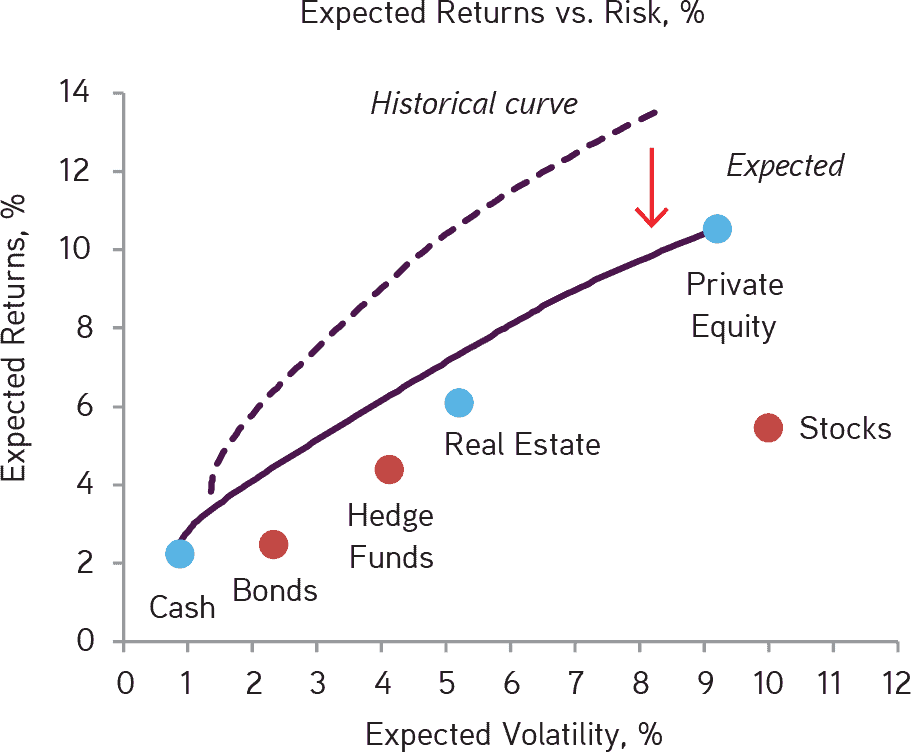Sunday Reads #92: Stock Markets, COVID-19, and Taboo Tradeoffs
May 24, 2020 1:31 pm
Hope you and yours are keeping safe.
I'm back again with the most thought-provoking articles I've read in the week. (in case you missed my previous newsletter, you can find it here).
This week, we first take a look at the stock market. The world is tipping into the mother of all recessions, and yet the stock markets are rising like nothing's happened. What the hell is going on?
Next, we talk about where we are now with COVID-19. As countries and cities grapple with the decision of continuing the lockdown or not, let's frame the problem a different way.
And third, the most hilarious thing I read this week - playing battleships in Venezuelan waters.
Here's the deal - Dive as deep as you want. Read my thoughts first. If you find them intriguing, read the main article. If you want to learn more, check out the related articles and books.
[PS. This week's newsletter was becoming too long. So I've shortened the commentary below, and put the rest on the blog. Do jump over through the links below to read on!].
[PPS. If you really like what I send you, I'd be honored if you could forward this to a friend. They can just sign up here.]
1. What the hell is going on with the stock markets?
The world is tipping into the mother of all recessions. And yet the stock markets are on a tear like nothing’s happened.
As I mentioned in COVID-19 is a Black Swan, but not for the reason you think, this is the state of the real economy in the US:
And here’s the S&P 500, halfway back to its previous highs.

The stock market back home in India is not as exuberant. But it has also risen, after a dip in March. Although the on-ground situation has only gotten worse.

What the hell is going on with the stock markets?
Over the last weeks, I’ve come across three hypotheses for this strange behavior. I don’t know which is right – I’m not a stock market expert (and I suspect they don't know either). Plenty of food for thought.
Short snippets below. Or you can go directly to the article at jitha.me.
Hypothesis #1: What kills you makes me stronger.
It's possible that large companies are unusually well-equipped to survive, and are also better able to benefit from government interventions. Meanwhile, small companies, individuals, and municipalities just don’t have the cash reserves or flexibility to react.
Are we going to see a "corporatization" of the economy? Read on.
Hypothesis #2: Everyone’s buying ETFs.
Another hypothesis (which explains the relentless bull run of the last decade) is the movement of investment banks from trading to fee-based income, and the movement of investing from day-trading to ETFs.
As more and more assets are available for investment in equities, the real economy almost doesn't matter. Advisors of every stripe are too busy buying ETFs for their clients.
Hypothesis #3: Zero Interest Rate Policy (ZIRP for the hip crowd).
Money is always swimming towards higher returns.
As the risk-free rate nears zero, even a slight increase in yield feels like an immense reward for taking risk.
Which is why, even as expected returns from the stock market go down, money flows in unabated.
.

Investors are ready to take lower returns (y-axis), while continuing to take the same, or more, risk (x-axis).
The yield curve is flattening. Unfortunately, it’s not the curve we’re trying to flatten.
Read on at jitha.me.
2. COVID-19 and Taboo Tradeoffs.
Scott Alexander has written a great “where are we now” primer on COVID-19: When all you have is a hammer, everything starts looking like a dance. (My summary here).
Apart from his updates on how we’re doing in our battle against the virus, there were two pieces I wanted to call out. One interesting, and one insightful.
Why are some countries containing COVID-19 better than others?
This one was interesting.
Scott evaluates the different theories for why some countries are doing better than others. And finds out that (a) stay-at-home orders don't seem to have mattered at all; (b) general government policy doesn't matter either; and (c) while testing matters, it still doesn't explain why some countries are doing well, and others are doing badly.
Clearly, there's still a lot to discover about this virus.
Lockdowns and taboo tradeoffs.
This part was far more insightful. Scott talks about the importance of framing.
A slight change in how we frame the coronavirus threat can lead to a very different decision on whether to continue the lockdowns or not.
Jump over to jitha.me to read my summary.
3. And the funniest thing I read this week...
A one-sided battle on the high seas.
A Venezuelan warship attacked an unarmed cruise ship for unclear reasons, but managed to sink itself in the process instead.
Wait, what??
As the news article says,
A Venezuelan navy ship fired shots at a German-owned cruise ship on March 30 and rammed into the passenger vessel, leading to the sinking of the warship in the Caribbean.
I had to read the line twice to make sure I read it correctly.
The cruise vessel (still unharmed) is called the RCGS RESOLUTE. Turns out the Germans name their ships well too!
That's it for this week! Hope you liked the articles. Drop me a line (just hit reply or click on the "Leave a comment" button) and let me know what you think.
Jitha